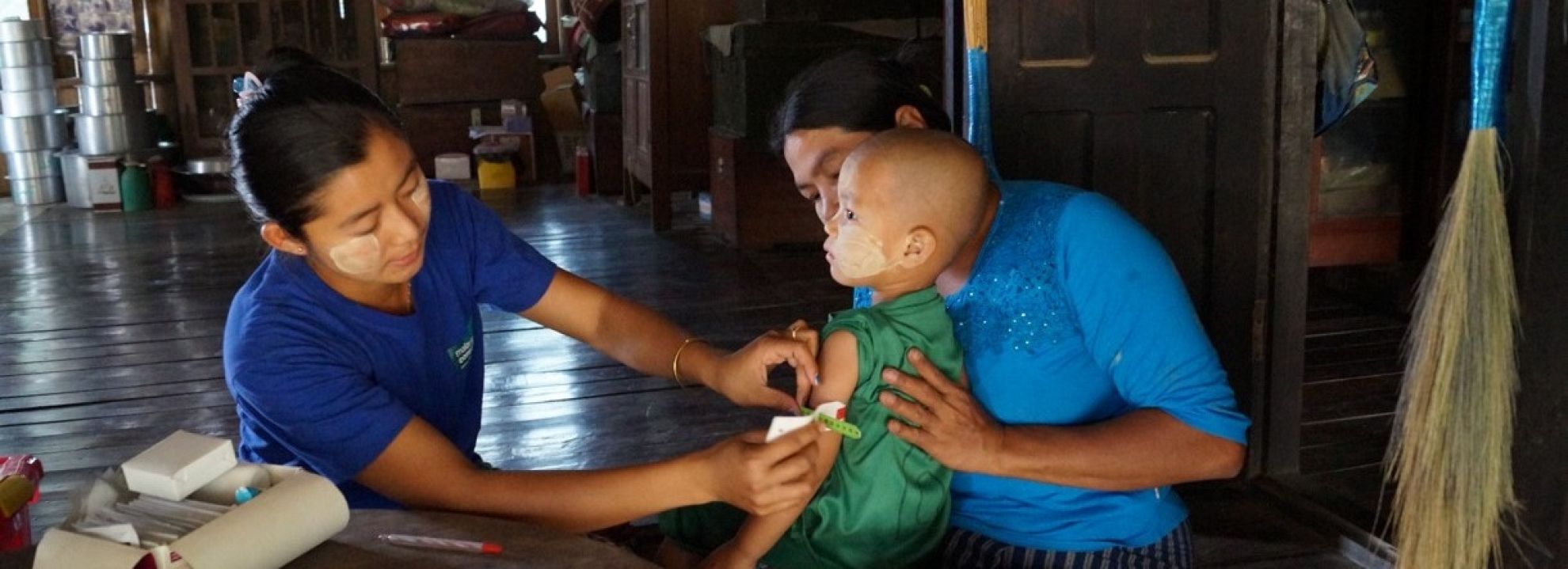
Remote, rural populations in Myanmar receive improved healthcare
4 August 2017Malaria Consortium announced the results from its project introducing integrated community case management (iCCM), which includes diagnosis and treatment of malaria, diarrhoea, pneumonia and malnutrition at a dissemination event today. The project covered three townships in the remote rural areas of western Myanmar’s Sagaing region, Kalay, Pinlebu and Banmauk, where lack of access to health facilities can prove fatal for children under five.
Myanmar benefits from an existing network (established by the Ministry of Health and Sports) of local villagers who act as malaria volunteers, so for this project Malaria Consortium built on this network by retraining 90 volunteers to deliver iCCM to their communities. Access to healthcare is limited in these remote areas, therefore trained volunteers, supervised by basic health staff, can play an important role in improving the healthcare available to their communities. With Myanmar moving towards malaria elimination, the need to ensure continued engagement of village health volunteers is crucial.
Results from the project demonstrate that malaria volunteers have been successful in diagnosing and treating childhood illnesses, as well as screening for malnutrition, while remaining vigilant about increasingly rare malaria cases. Moreover, the participation and cooperation of key government departments – NMCP, Child Health and Development Division, Nutrition Development and Research Division – in this project has been vital to the project’s success.
Siddhi Aryal, Malaria Consortium Asia Director said, “iCCM has the potential to become a feasible and effective strategy for extending Myanmar’s health services to remote communities and improving the health of these communities in line with the Global Goals for Sustainable Development. This new project will inform policy decisions on integrated community case management implementation in Myanmar.”
The project’s success is reflected in a grant Malaria Consortium recently won from Comic Relief and GSK and which will continue to support the populations of Sagaing region. The project will cover three additional townships (Kathar, Wuntho and Kawlin) for the next two years.
.
Funding for the pilot came from Vitol Foundation and UK Aid from the UK Government. The new two-year project is funded by Comic Relief and GSK.
Country: Myanmar
Keywords: Community delivery
Latest news
- Malaria Consortium honoured by Ugandan government for contribution to combat malaria23rd April 2024
- International summit calls for AMR accountability in public health interventions21st March 2024
- Global SMC community celebrates new milestone at SMC Alliance Annual Meeting in Nigeria6th March 2024
- Scaling up key interventions could halve pneumonia-related childhood mortality13th February 2024
- Malaria Consortium and eGov Foundation join Mozambique’s national malaria programme to digitalise seasonal malaria chemoprevention campaigns8th February 2024
- World’s first malaria vaccine rollout launched in Cameroon22nd January 2024